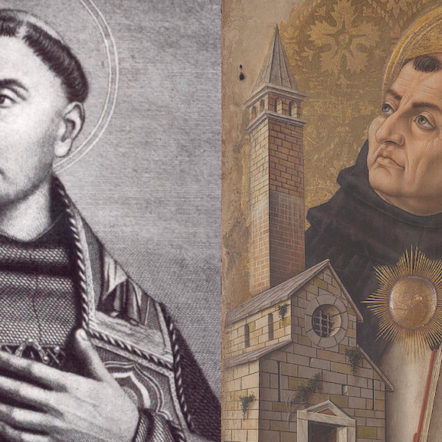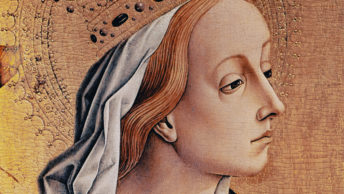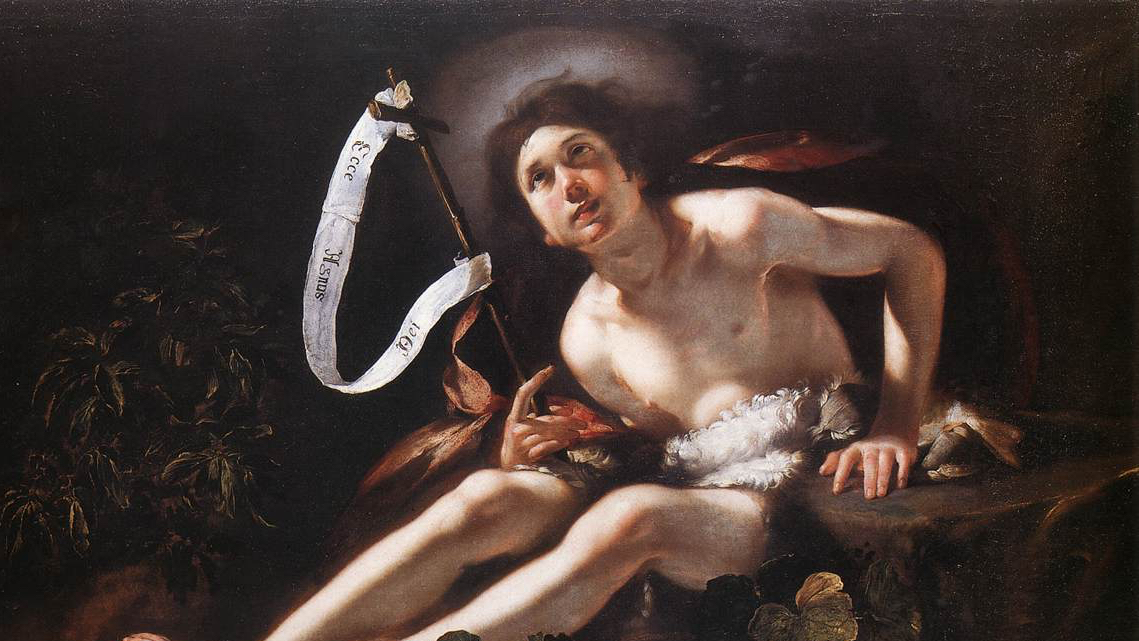To be honest, as I read about the university power spat that resulted in the denial of tenure (or something very much like it) to no less a pair than Saints Bonaventure and Aquinas at the effectively Catholic university that the University of Paris was back then–in 1254-1257–and read too of the saints’ impassioned responses to the discrediting of their mendicant orders by the ill-countenanced veteran academic who had succeeded in kneecapping their tenure walks—documents that would become charter statements for the yet evolving Orders’ paths forward in a soon-to-be post-medieval Christendom—I’m inclined to cheer for the guy who did the kneecapping and who was most behind the anti-mendicant fracas in both its first (1254-1257) and in its second phases (1269-1270). On the other hand, yes, I admire the spit and intertextual thoroughness with which the saints defended their Orders, its lapses in diplomatic faculty relations notwithstanding.
But, first, denied tenure—yes, that, or something very like it, is basically what happened to Bonaventure and Aquinas, when, late in the mid-13th-Century year of 1254, the two were, as I say, kneecapped on their way to their expected seats on the consortium magistrorum’s theology bench at the university where they were then teaching (by, imagine it, an interdiction from the Pope himself no less). Yes, those two: the Seraphic and Angelic Doctors of the Church, as they are recalled today; the first, the writer/mystic/administrator pointed to by Pope Benedict XVI as “one of the most important theologians in the history of the Church”; the second, the philosopher/theologian about whom Chesterton said the Reformation wouldn’t have happened if people had had the brains to understand him; together, a writing pair whose names appear on the spines of the Summa Theologiae, the Summa Contra Gentiles, Itinerarium, Life of Saint Francisand half-a-hundred other books on every Pope’s nightstand! They were denied tenure by the same Catholic university in roughly the same academic year!
And what was behind that? you ask, assuming rightly that the sticking point with those doing the denying was not the intellectual capabilities of the denied, but something else.
Yes, good question, for there was indeed something else apart from the nominees’ abilities behind the sudden roadblocking of their academic careers. And that was the off-campus as well as on-campus, Catholic-Church headache for much of the 13th-Century recalled historically today as the Secular-Mendicant Controversy. In sum, antagonistic for most of the century were relations between the Church’s long-serving secular clergy (bishops and diocesan priests) and its newly arrived mendicant orders. The long of that story would go back to the
On the other hand, yes, I admire the spit and intertextual thoroughness with which the saints defended their Orders, its lapses in diplomatic faculty relations notwithstanding.
beginning of the century and the Holy Spirit having inspired in its first decade visionary folks such as Francis of Assisi and Dominic de Guzman to found religious congregations that would save Christendom from its corruptions and its heretical enthusiasms by way of, yes, the quality of their preaching and their radical commitments to poverty, but also too by way of their ability to get to the places where they were most needed. To achieve this, these new Orders’ members were not going to be taking the vow of stability that for the whole of the millennium prior had kept monks and nuns inside their monasteries and convents. No, in whatever spots and places where their zeal took them, the vows of poverty, chastity and obedience alone would be their routes to both holiness and witness, along with the aforementioned emphases on penury and preaching. As for all those many juridical and pastoral structures in the Church that would make the bishop their boss in his diocese, no, the mendicants would largely be absolved of them. They would travel and do their business by way of papal privileges.
Well, you can quickly discern how this would play out. It was in the nature of things that the seculars, led by their bishops, would come to perceive the mendicants as encroachers, as siphoners, as frauds, and, worst of all, as correctives to their own presumed lackluster ministerial performance. No, no one wants to be the foil for the other guy’s virtue, which is what the secular clergy felt themselves to be whenever either a Franciscan or a Dominican spoke of his Order as a reforming agent in the Church. And why didn’t the mendicants work with their hands as had the monks and nuns? The seculars also asked this about the new guys in their work spaces. Instead, if you happened to spot a grey-cassocked Franciscan or a white-robed Dominican under a tree in the cathedral’s plaza—which was not a hard thing to do, given their burgeoning numbers—for sure he had his hand out. Or if he was a Dominican, he was preaching, said the seculars, for that was the other consequence of the mendicants’ having put away their monks’ hoes; they were styling themselves preachers.
No, off campus feelings were not brotherly between the mendicants and the secular clergy when in 1235 Bonaventure (not yet a Franciscan but destined to become one) arrived at the University of Paris, nor ten years later when Aquinas (already a Dominican) did the same (in his first go at the place). As for on campus, things there were yet more fraught. Indeed, says one historian, the University of Paris was “ground zero” for the then Christendom-wide Mendicant-Secular Controversy. And that was for this reason: because in addition to all the things that seculars and mendicants had to fight over off campus, they had these other things too to fight over on it: rank, authority, honorifics and ideology (aka, theology). And, oh, how don’t academics love to fight over those things!
In short, in 1254, just as the already impressively resumé-ed Bonaventure and the relative newbie Aquinas were being promoted by their religious Orders for two of the three magister’s chairs in theology that the Orders had over time come to control, one William of Saint-Amour, a veteran secular magister, and three of his colleagues were on their way to Rome to tell the Pope of all the a-collegial things that the Dominicans and Franciscans had done at the University of Paris since their arrivals there in 1217 and 1219. To begin, said William, in
No, no one wants to be the foil for the other guy’s virtue, which is what the secular clergy felt themselves to be whenever either a Franciscan or a Dominican spoke of his Order as a reforming agent in the Church.
the old days when the friars first came to Paris (as well as for a long time before that), all of the theology seats on the magister’s bench had been held by secular masters. What’s more, at that time the passage of any one of those seats to a mendicant would have seemed impossible, given that the transfer process was largely an incumbent-designates-his-successor sort of a deal. Yet still, by 1236, the Dominicans had secured two such chairs and the Franciscans one. And how had that happened? William and his secular colleagues would wish to know, given that official accounts of what had transpired seemed fishy to them. Then, too, the seculars were chagrined to see the great number of students who were attending the mendicants’ lectures, and the similarly large numbers that were being licensed to teach. Yes, the mendicants had a need for teachers in the new schools and communities they were founding all over Europe; however, in Paris, their students’ getting through so hitchlessly looked like grade inflation to their secular colleagues. Also, it irked them that the Franciscans and Dominicans were regularly switching in and out of their magisters’ chairs the academics who occupied them. Better the secular custom of the magister’s remaining in his chair until the undertaker came for him. Also, were the mendicants more interested in advancing their mission in parts and places distant than they were in promoting the University’s local interests? Their aloofness relative to local matters such as faculty strikes certainly made it look that way. Yes, lastly, there was the issue of faculty strikes. The seculars thought it important that all faculty participate in them. However, whenever one got going, the mendicants said, Sorry, we’ve got work to do.
In short, these guys were abusing their privileges, said William, and would the Holy Father put them in their places? And, remarkably, that, and then some, is precisely what Pope Innocent IV did. Specifically, in his Bull of November of 1254, etsi animarum affectantes salute, Innocent not only froze the Orders’ University of Paris activities relative to the theology chairs in question, but also, and far more consequentially, he rescinded throughout Christendom many of the Orders’ privileges, decreeing, for example, that the faithful could not satisfy their obligation of hearing Mass on Sunday in the churches of the friars; neither might they go to confession to them. The friars, moreover, were not to preach before Mass on Sunday nor any day on which the bishop or his representative held a sermon in the same town or city. Lastly, all these ordinances were sanctioned by excommunication and/or other ecclesiastical censures.
Wow! And why had Innocent IV acted in so draconian a fashion against the friars, given that he and they had always been friendly in the past? That is to this day something of a mystery, though, yes, it’s likely that the Holy Father was also getting grief about the friars from
In short, these guys were abusing their privileges, said William, and would the Holy Father put them in their places?
other upset quarters. In any event, the actions Innocent IV took against the mendicants in that Bull did not last long because, within five weeks of his issuing it, he had passed away, had been succeeded, and his successor, Alexander IV, had reversed his predecessor’s anti-mendicant directives with a Bull of his own, one that lifted all the restrictions that had just recently been placed on the friars, including those that pertained to their activities at the University of Paris.
And now this first phase of the campus quarrel would enter into its theological portion, for, no, their rebuking by the Pope notwithstanding, the seculars were far from finished. Indeed, by manifold devices—a threat to withdraw from the University and sink it, among them—the dons would continue to obstruct the chairs’ transfers to Bonaventure and Aquinas for more than another year. As for all the many things that were said and done during this unhappy year and a half in the environs of the University of Paris, suffice it here that I report just three items, for by way of them I believe I can make the points that are for me the valuable takeaways from this crazy episode in Catholic-Church, higher-education history.
Item, the first: that the principal purveyor of the arguments against the mendicants’ theological legitimacy was none other than William de Saint-Amour. Yes, the same William who had gone to Rome to communicate to the Pope all the many a-collegial things that the Dominicans and Franciscans had done during their several decades in Paris, having both won and lost that case, did next this stubborn thing: He gathered all his maniacal genius and all his acrimonious regard for the friars into one compositional effort whose end product was a tract titled de periculis novissimorum temporum (On the Dangers of the Last Times). As for the tract’s influence with the authorities, no, it had none. After his reading of it, Pope Alexander, who was no friend of William’s, decided that the veteran Paris master needed to be expelled from France. Similar was the pious French king, Louis IX’s, response to the text; he ordered it burned. And, yet still, the anathematized treatise was nothing short of impactful, becoming in the ages to follow the anti-mendicant codex for all sorts of anti-mendicant initiatives, while, in the immediate, it was that defamatory posting by one of their senior colleagues that the mendicants in Paris most had to respond to if they were to have any hope of getting on peacefully with the larger university community. And, too, as regards its impact, it was, against its own intentions, providential. I say this because the truth of the matter is that both the Franciscans and Dominicans (but mostly the Franciscans) had been, up until this early moment in their histories, flying by the theological seats of their pants. Their founders had been visionary men, but they were like that super-smart kid in your fifth-grade math class who got all the right answers without doing the arithmetic. As per the mendicant orders’ scriptural and ecclesial essentialism, someone needed to do the math for the larger Church and explain, for example, how the mendicants’ begging for a living accorded with Paul’s stern advisement to the Thessalonians that “if anyone will not work, let him not eat” (2 Thessalonians 3:10). Or, similarly, someone needed to explain what was so “evangelical” about the three big renunciations that the mendicants had decided would be their vows, for by dispossessing themselves of all of life’s cares it looked to some less like they were taking up the cross that Jesus had required of his followers (Matt. 16:24) and more like they were putting it down. And, as for the millenarian character of the Franciscan’s oft-recurring takes on salvation history, wherein Francis was an end-time like prophet, those too needed, to the extent that it was possible, a scriptural linkage. Yes, as per this last point, William was basically asking the Friars Minor whether they were following Jesus or Francis.
Hence, when the mendicants responded to these accusations, as they shortly would, they would be doing themselves the favor of putting their mendicant project on firm theological, scriptural and ecclesial footings forever after. Indeed, they would be doing as much for the great number of non-monastic religious orders that would be founded in the centuries to follow. For, as history would soon start demonstrating, the founders and curial encouragers of those many new orders would frequently look back to what the mendicants had said about themselves on this occasion as if to blueprints for their own mission statements. As regards who in particular among the friars would answer William’s charges, that I will soon tell you, for
Hence, when the mendicants responded to these accusations, as they shortly would, they would be doing themselves the favor of putting their mendicant project on firm theological, scriptural and ecclesial footings forever after.
that piece of information is the substance of my second item. However, before doing so, I would wish to say this other good thing about William’s de periculis. Its motive forces surely included, as I discern them anyway, the desire to stand up for the little guys in the secular clergy of the medieval era–University of Paris faculty, among them–who may not have been the compromised, self-serving lot imagined by the mendicant’s clerical-reform movement or history’s recall of the era. Yes, surely in the 13th-century there were lots of priests like the humble, and appropriately enough unnamed, protagonist of Georges Bernanos’s 20th-century village-cleric classic, The Diary of a Country Priest, who did better than his colleagues in the cloth without getting credit for it. However, if there were, they are unfortunately forgotten unto dissing in the literature and the histories of the time. If only there had been a novelist back then to write a classic comparable to Bernanos’s. In any event, as I imagine the backdrop of William’s exercise in mendicant bashing, I think of the Curé of Ars types in his day—and in every day since—whom we rarely hear about.
As for the authors of the three major statements in theological defense of the mendicants, they were these: Bonaventure, Aquinas, and the Oxford Franciscan Thomas of York. In other words, as the Paris debate about the friars shifted from their appropriate involvement in university matters to their theological legitimacy, the characters on the campus stage did not much change. William was up against the very pair of academics whose seating on the magisters’ bench his interventions had forestalled. Poetic justice in that, as well as too bad luck for William, for, in the persons of Bonaventure and Aquinas, he was certainly up against a talented duo. Elsewhere you can read what wrote the Franciscan Bonaventure in his Questiones Disputatae De Perfectione Evangelica (Disputed Questions on Evangelical Perfection) and what wrote the Dominican Aquinas in his Contra Impugnantes Dei Cultum et Religionem (Against Those Who Assail the Worship of God and Religion) on the question of their mendicant orders’ role in the Church and in Jesus’s design for his humanity’s saving. Here I would wish to say just this about those documents: that they are scrappy, no-pulled-punches sorts of academic exercises. On howsoever many days they or their friar brothers may have failed collegially or even morally at the University of Paris or elsewhere, the Seraphic and Angelic Doctors play the game of defending their Orders’ theological legitimacy in these texts as if the goal is to finish with a score of 100 to 0. One sees this most transparently in Aquinas’s Contra Impugnantes, wherein the junior faculty member begins with a prologue that names his opponent as the Devil himself. Yes, such was Aquinas’s conception of the senior faculty he was up against, and he was not bashful about stating as much. As for Bonaventure, his manner in Questiones Disputatae is more civil but no less determined. One sees this in the great number of scriptural and patristic references he brings to bear on each and every of his work’s disputed questions (twenty-five alone to make the point that a friar’s begging is a holy thing). In other words, long before our contemporary evangelical Christian brethren were Bible thumping us senseless, Bonaventure was doing that very thing to everyone else. And it was a killer way to argue.
I bring up these two features of Aquinas’s Contra Impugnantes and Bonaventure’s Questiones Disputatae because as a literature professor I am currently writing a paper in which
In other words, long before our contemporary evangelical Christian brethren were Bible thumping us senseless, Bonaventure was doing that very thing to everyone else. And it was a killer way to argue.
I am defending the Catholic Church against the slurs of a famous writer and the minions of his scholarly readers. Yes, in that context, the moral of the story in what I see on Aquinas’s and Bonaventure’s pages is to footnote heavily and to write as if your opponent is the devil.
Lastly, item three: Did Bonaventure and Aquinas ever get their theology chairs at the University of Paris? Yes, much to his enemies’ chagrin, in December of 1256, Aquinas started lecturing at the most consequential level on the University of Paris’s campus (albeit with the warranted protection of the King’s archers, so ill were feelings for him on the opposite side of the Secular-Mendicant divide). Meanwhile, Bonaventure’s chair came to him a few months later, although by that time he had moved on to his next appointment in life, that of Minister General of the Friars Minor (and moved on, too, I should add, to that job’s biggest order of immediate business, the eradicating of a non-Christocentric, apocalyptic energy that had infiltrated some of the Friars’ thinking [for, yes, William had been right in that regard]).
And so ended the craziest episode in the whole history of Catholic higher education—that one wherein Bonaventure and Aquinas had their tenures (or something like it) withheld from them at the Catholic university where they were then teaching.








